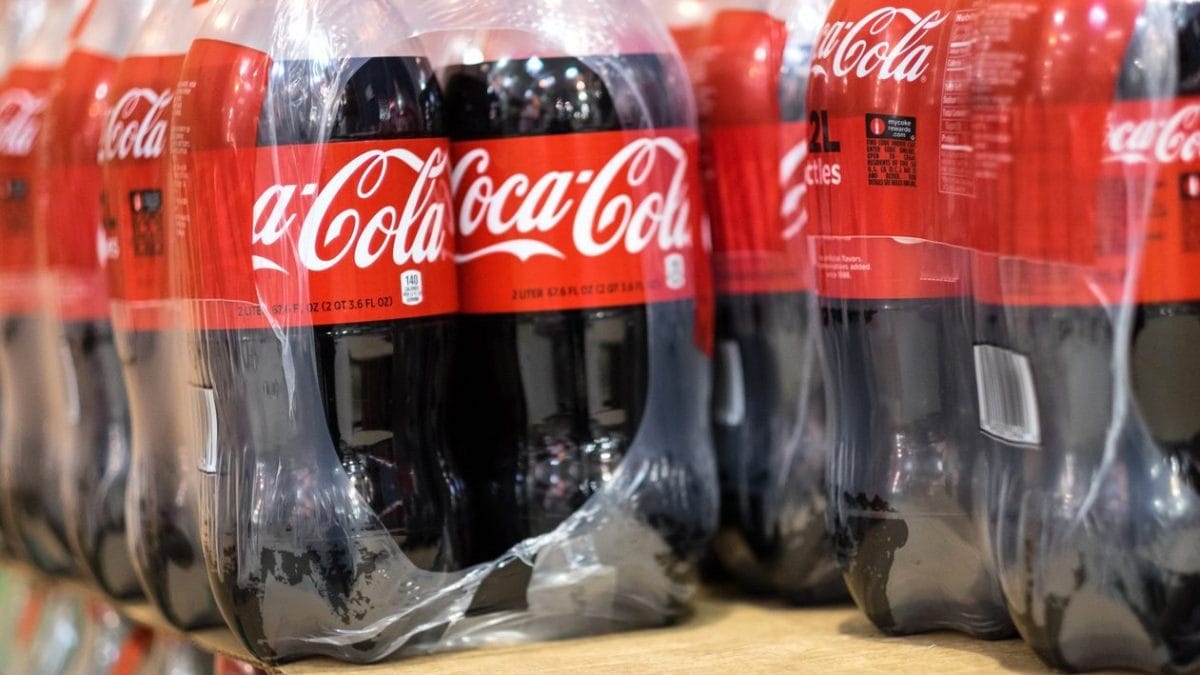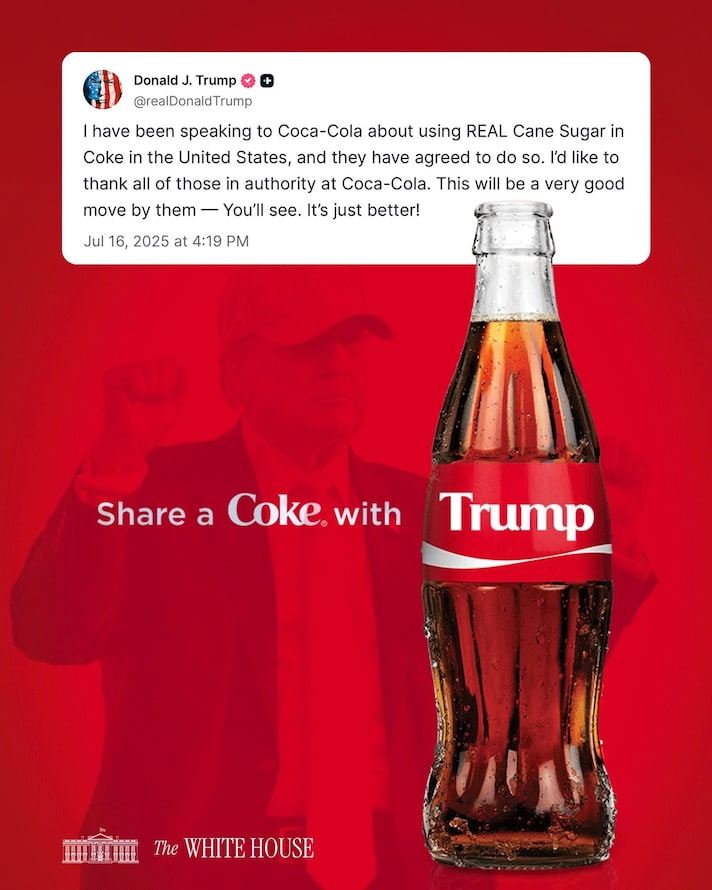
In recent days, rumors emerged of a possible strategic move by Coca-Cola to introduce a new version of Coca-Cola sweetened with cane sugar to the American market, following the US President's post on corn syrup. Now it's official: the Atlanta giant has confirmed the launch of this new product for this fall, coinciding with the release of its second-quarter financial results. But there may also be a political implication behind this commercial move.
A New Coca-Cola Sweetened With American Cane Sugar
According to an official announcement from the company, Coca-Cola will introduce in the United States a new version of its famous soft drink, made with cane sugar, instead of the now widespread high-fructose corn syrup commonly used in American drinks.
"This addition is designed to complement the group's strong core portfolio and offer more choice for all occasions and preferences," the official statement reads. Coca-Cola did not provide further details on the new product's distribution, brand name, or any distinctive packaging.
Product Innovation or Political Strategy?
Making this move even more interesting is the timing of a statement by Donald Trump. On July 16, the former president wrote a post on the Truth Social platform, stating that Coca-Cola had agreed —at his request—to begin producing its drink using "real cane sugar" in the United States.
Trump provided no evidence to support this claim, but the timing raised questions among observers and analysts. The company neither confirmed nor denied any political pressure or external influence, simply placing the product launch within a broader program of "continuous innovation."

A Move to Win Back Conservative Audiences
In recent years, Coca-Cola has often found itself at the center of American political debate, accused by some members of the conservative right of adhering to "woke" or overly progressive positions. A version of the drink that harks back to tradition, made with a natural sweetener like cane sugar—and specifically "American" sugar—could therefore represent an attempt to reconnect with a segment of consumers who are more patriotic or critical of the globalized food industry.
This isn't the first time the company has proposed a variation on its original recipe: over the years, it has launched stevia – containing, caffeine-free, flavored versions, and, of course, Coca-Cola Zero and Light. However, the return to a more natural and less industrial sugar appears to be a symbolic, almost identity-defining move.
A Market Test or a New Direction?
It will be interesting to see how US consumers respond: the beverage market is highly competitive, and taste remains a determining factor. However, in an era where the origin of ingredients and label transparency are becoming increasingly important, simply switching sweeteners could win over a new segment of consumers, attentive to quality and authenticity.
The fact that Coca-Cola has chosen not to promote the product as “healthier,” but simply as part of its diversified offering, indicates caution: this is likely a test, with the possibility of extending or modifying the initiative based on market reaction.
;Resize,width=767;)
